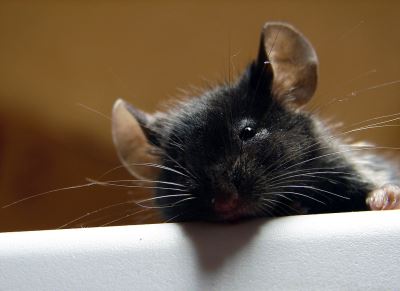Rats
8 Common Behaviors of Pet Mice, Explained
Pet owners who have lived with these tiny little fur balls know how smart and fun they can be. They either play all day and have fun, but they also rest when they can. But if you are new to having a pet mouse or mice, you might not know yet how to interpret on how they behave inside their cage. And so, I have listed some of their common behaviors that you might observe while they are having fun or just interacting with other mice inside rat cages.
1. Groom groom and more grooming
Your furry little friends love to groom themselves and keep their other cage mates clean. They do not only play all day, but they also groom themselves periodically. However, not all mice who groom themselves are good. Some mice might be nervous or stressed out because maybe he is new to the cage or is not familiar with other mice in his home. Just keep an eye on that little mouse that keeps on grooming all the time. He might be stressed out and you might be able to help him.
Sometimes, a mouse will try to groom another mouse. If that is the case, this could be a sign that the mouse likes the other mouse. Also, there are instances when grooming other mouse signifies dominance. A dominant mouse might try to over groom the other mouse and may leave a bald spot on that mouse.
2. Chase me if you can
These cute little mice are like children on the playground or park too. They like to chase each other around the cage for fun. This behavior is normal in young mice just like kids. Some mice might fight and end up chasing each other, this is their way of showing who’s the boss.
There is a way to differentiate if the mice are either fighting or just playing around. Mice who are playing with each other don’t touch each other and if they do touch each other, they might be fighting. Mice playing with each other is also a quiet play with almost no squeaks.
3. Standing up
If you only have one pet mouse and he tries to stand up, it might be a sign that he wants to see something or wants to get a better view of something that caught his attention or try to catch a closer sniff on something that he smells.
But if you got 2 or more mice and both tries to stand up, they might be getting ready to fight each other. This behavior is common to male mice. But sometimes when they stand up and the other mouse is being submissive to the other mouse, this is a sign of respect to the other mouse’s dominance.
4. Tail wagging
Not only dogs wag their tail, but mice do too. But unlike a dog who wags his tail when he is happy, a mouse, on the other hand, wags his tail as a sign of annoyance or aggression towards another mouse.
5. Burrowing
Your pet mouse/mice are natural born excavators or miners in the wild. They are able to create complex underground tunnels in the wild. But if they are left in your cage, they might try to burrow into the bedding.
Try having a generous amount of bedding in their cage so that they can burrow around and let their natural instincts do their job. This can help them mentally by giving them a place to run into if they are scared of something or just a place of comfort for them. Don’t be surprised if the mouse has gathered some of the bedding somewhere around the corner. He might be making a nest for himself or for his friends as well. Your tiny little friends are just making a place for them to be comfortable.
6. Teeth grinding
Just as your mouse grows, his teeth are also growing. So his teeth grinding is nature’s way of saying he is growing healthy. Your little furry friends usually grind their teeth when they are relaxed and not playing around.
7. Whisker wiggling
Your little friends don’t have great eyesight to help them see around, instead, their whiskers help them find their way around the cage. It also helps them navigate around, especially in the dark. So when you see those tiny critters wiggle their whisker, they are just trying to navigate the area around him.
But sometimes you won’t see them wiggle their whiskers around because they are nocturnal creatures. So they have a different sleep schedule. While
you are sleeping, they might be wiggling their whiskers some more just to navigate in their dark cage, unless you left the lights on.
8. Pointy ears going up and down
Your friend’s tiny ear position will determine his mood at the current time. If the mouse is happy and having fun, his ears are pointing upward. But when it is down and pointed back, it shows that the mouse is having a bad mood and is telling you to back off. That is also one of his defensive posture.

Have you encountered any of these rat behaviours? If you have devoted so much time for your pet rats, then these behaviours are no longer new to you. So let us know how you dealt with your tiny buddies by dropping comments below.
Image Sources: [1] [2] [3] [4] [5] [6] [7]




Hey, thanks for the ideas. I am planning to bring mice as my new pet. Hope it will be fun to be with them.
i have a mouse who is gently biting me. she is a baby, and every time she bites, she does it like a bunch of nibbles, and then a bite, no blood yet, but every time she bites, i put her in the box she came in for 1 minuet. but why is she biting? is it a stage?
It might be that she is grooming and showing you affection. Or that she’s trying to show you who’s boss but doesn’t want to hurt you. Rat’s teeth are very pressure sensitive. Mine have groomed me and are sensitive enough to remove dead skin off my lip without harming me. We’re talking about being able grab hold of a layer of skin that’s not even a millimetre thick. That’s more accurate than me trying to use a pair of tweezers.
So believe me, if they want to bite and draw blood they can and if they are not it’s because they don’t want to.
Hey! This is completely normal and should not be “punished”. This is know as test biting and it won’t get to a point where she’s actually hurting you. She’s exploring who you are and why you’re in her territory. It’s a critical part if the bonding process.
Also as a side note, consider getting her some friends, and female mice need to live in groups of three or more.
I have mouse pet that had ran away and it came home the next morning.
Anyone experience the same ?
Yes we just got ours back after using a live trap to catch it. Her friend is not happy with her and is showing dominance. The last time we had this happen it was with a male and it didn’t go well. We learned the hard way not to get two males. I am hopeful the escapee can readjust into the cage. We have only had them for two weeks.
Hey guys, I have 3 baby girl mice who are always scared of my shadow and run away. Is that normal?
And how do i get them to trust me?
Hey guys, I have 3 baby girl mice who are always scared of my shadow and run away. Is that normal?
And how do i get them to trust me?
You should allow them to adjust to new smells and sights, then put your hand in their cage for 10-15 minutes a day allow them to climb on you, but do not lift them.
I currently bought two male mice and am looking for housing advice
Should I let them meet each other or is it too dangerous? I hear housing them alone is cruel, but I need to know of they could possibly live together
I have two female mice and I noticed that they tend to fight a bit but at night they curl up and sleep together can anyone tell me if this is normal or if one of my mice is being a bully to the other.
I have a caged mouse who likes making tissues into hills…There is another uninvited mouse in my apt and at night it comes and pulls out the tissues from his cage.. Is that friendly play or an act of aggression? I ve seen this mouse but am usually asleep when the pulling out tissues occurs but I see the result of the tissues all around the outside of the cage.. Do i stop this or is it play? Not sure if they are males. ty beth
We found an abandoned (we made sure, waited 6-7 hours) mouse around 5 days old and to our surprise he is thriving now 2 weeks later. He’s gulping his kitten milk replacer formula and growing it seems quite well. He’s all alone though. I understand male mice fight & we don’t want mouse babies so no female & no getting neutered. Letting him outside on his own seems like a horrible idea, poor little guy is all alone. How can we give him the best life?